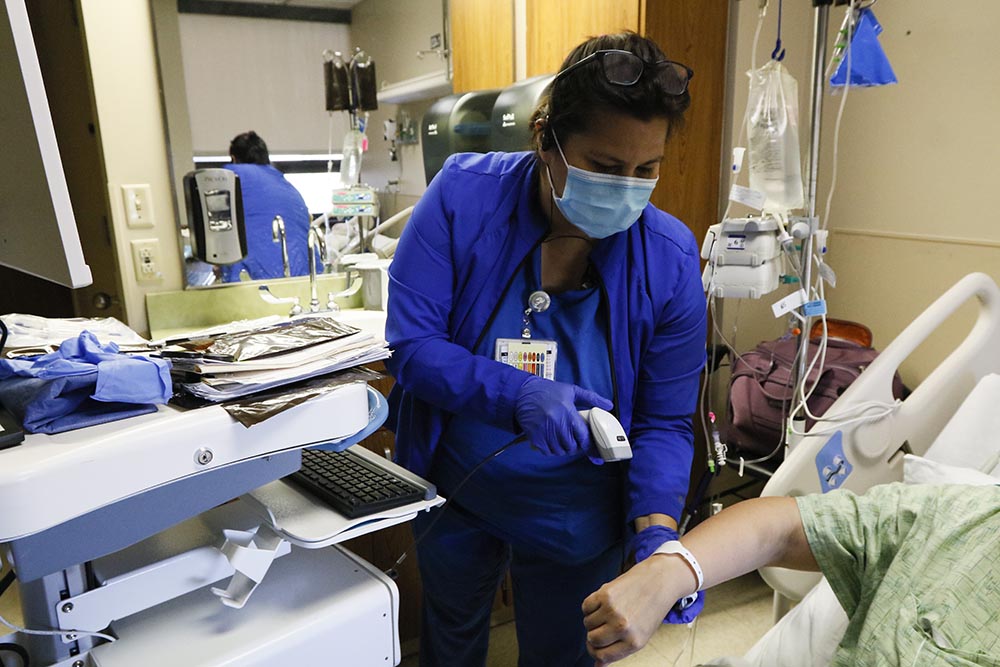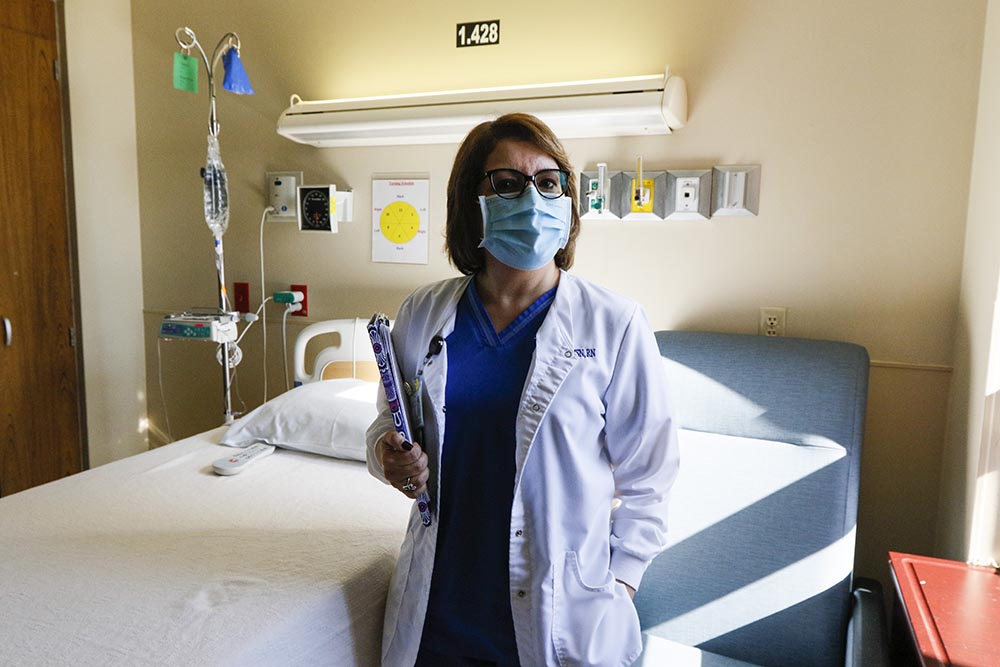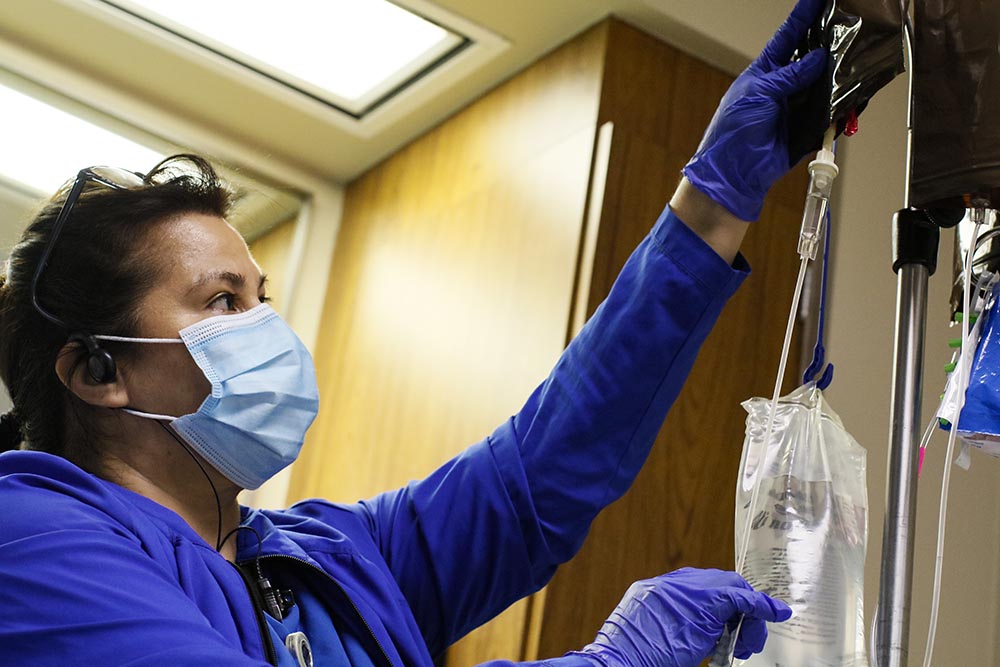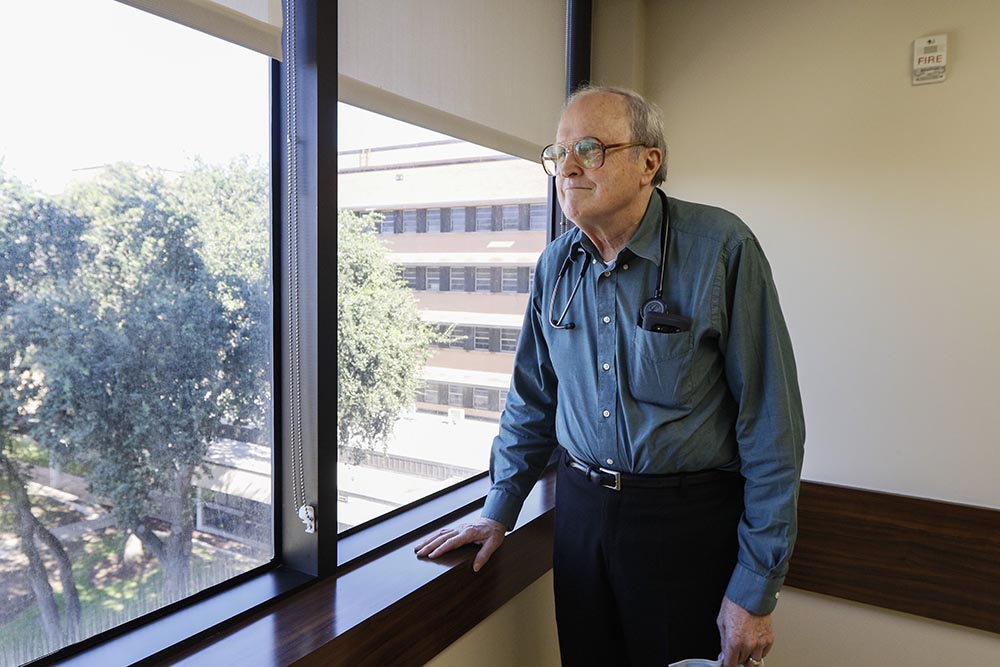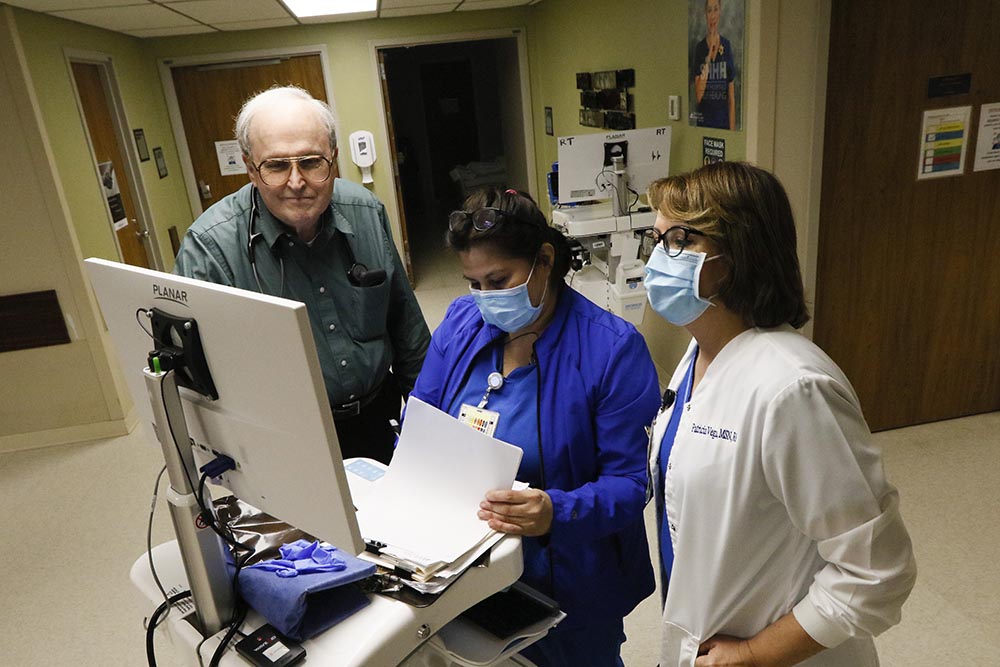HARLINGEN – Sheer terror.
The moment someone hears the word “breast cancer”, the breath freezes, a gust of adrenalin shoots through the body, and the brain shorts out.
October is National Breast Cancer Awareness Month, and local physicians are reminding people to be proactive in their wellness.
“Breast Cancer Month is a good time to remind women of the need for breast examination, mammograms, the need to take care of themselves,” said Dr. Todd Shenkenberg, medical director of the Rio Grande Valley Cancer Center.
“We want to remind their physicians of that as well and also just to make the public aware,” he said. “It’s a good time to acknowledge all the women we know that’s faced breast cancer.”
National Breast Cancer Awareness Month was founded in 1985 to promote mammography as a way of screening women for breast cancer. Hospitals and charities use October’s NBCAM to educate women about breast cancer and early detection.
Women under the age of 40 should do monthly breast examinations. Those over age 40 should get yearly mammograms, said Patty Vega, director of oncology services for Valley Baptist Medical Center.
Locally, many women may not have access to health care for breast mammograms. Therefore, during the month of October many organizations offer discounted screening mammograms, Vega said.
Valley Baptist and other organizations use the month as a way to promote greater awareness about breast cancer.
“We have a whole campaign throughout the hospital in which we wear pink on Fridays,” Vega said. “We have different projects each day of the week, so we encourage the use of pink shirts and socks and shoes, scrubs – and masks nowadays.”
Part of the awareness involves putting emphasis on early detection, which increases exponentially the chances of survival.
“Breast cancer is one of the most common cancers for women, and it’s treatable if we catch it early,” Vega said. “So that’s why we really try to push for early detection. Stage one is very manageable and treatable with different types of therapy.”
The importance of screening is further highlighted by the fact that breast cancer can be undetectable and without symptoms.
“Lack of screening predisposes women to higher chances of developing a more aggressive cancer,” she said.
At that point, treatments are still available, but survival is much less certain.

